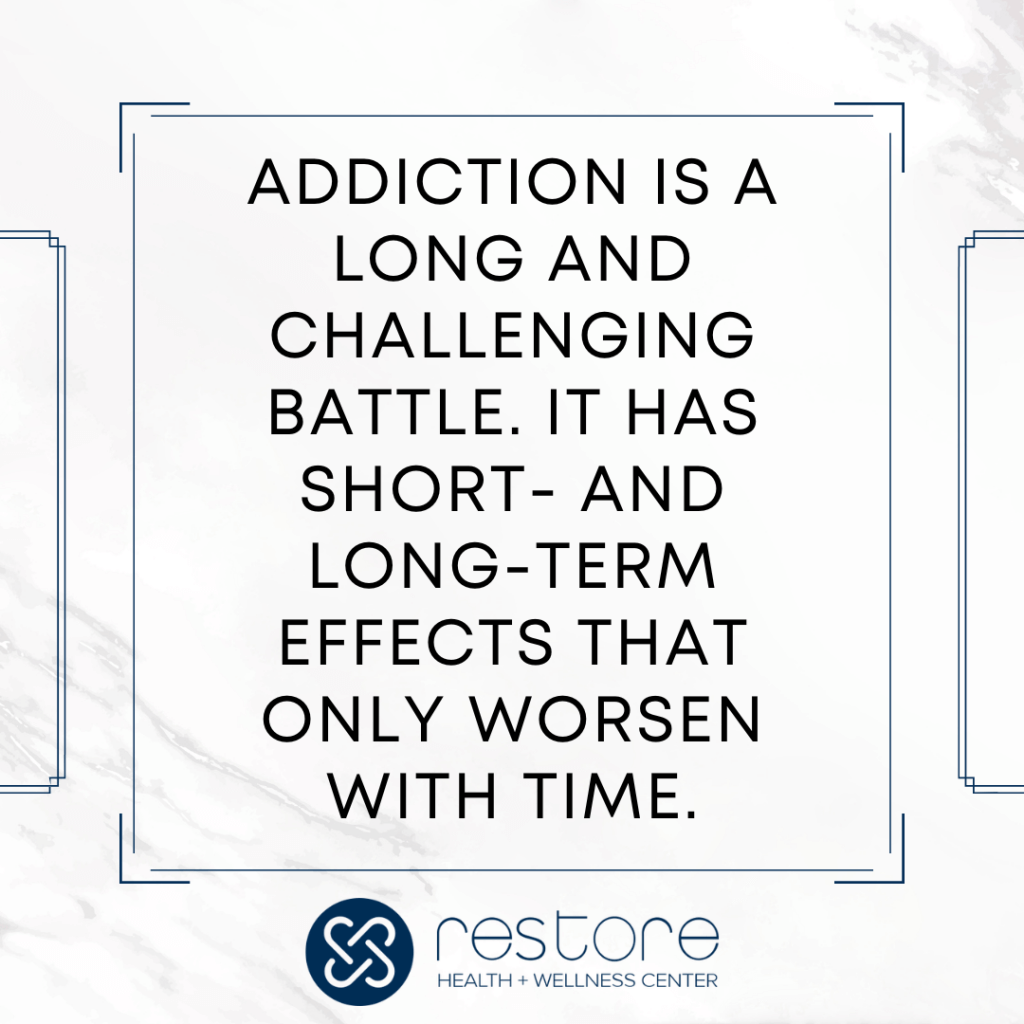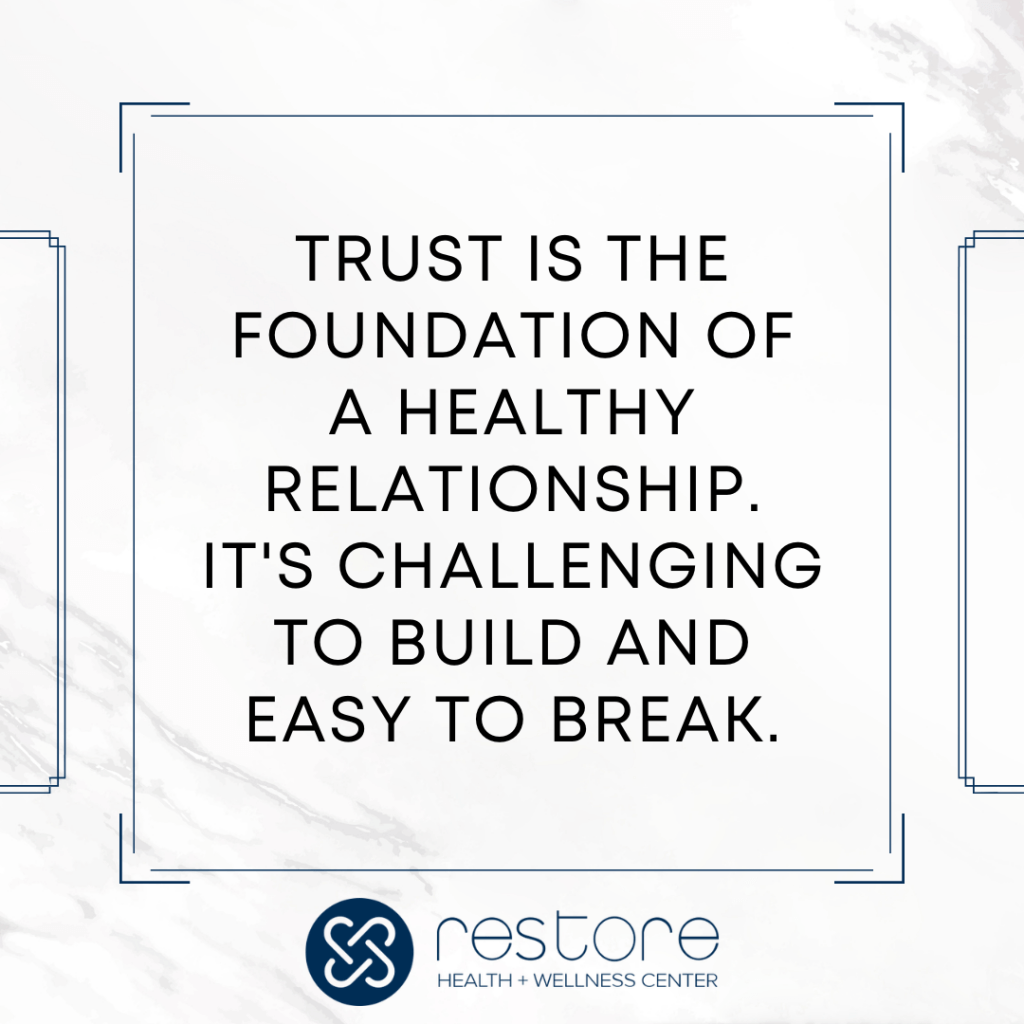Addiction is a long and challenging battle. It has short- and long-term effects that only worsen with time. Aside from causing physical and mental health issues, it can strain your relationships with your spouse, children, parents, or friends. This prevents you from getting the support you need to achieve recovery.
Personal relationships and addiction are often intertwined. As you get consumed by your dependence on the substance, you may neglect or avoid certain people and responsibilities in your life.
It may also make you secretive and deceptive, making it hard for other people to trust you. This can get traumatic for your loved ones, and there’s a high risk of them developing unhealthy coping mechanisms.
Intimate relationships are put to the test when someone gets stricken by addiction. As a result of excessive drinking or drug use, conflicts become constant to the point that it already undermines trust and weakens bonds.
Understanding how a drug or alcohol addiction affects your relationships is crucial in your healing journey.

How Addiction Impacts Your Personal Relationships
Codependency
Codependent individuals are often attached to a partner that lacks maturity or suffers from an addiction or personality disorder. While the codependent is frustrated by the actions of their loved ones, they still feel the need to serve and please them.
As a result, they tend to help their loved ones even if it enables them to continue their bad habits. It gives them a sense of fulfillment, knowing the other person needs them. For example, you’re lending money to a close friend you know would use the money to feed his addiction.
Enabling is common in codependent relationships. Some of the common enabling actions are:
- Making excuses for them
- Supporting them financially
- Putting their needs first
- Blaming other things for the person’s addiction
Secrecy
People hooked on alcohol or drugs are often reluctant to share about their addiction due to guilt, embarrassment, and the fear of judgment. They feel that nobody would understand or accept their situation, so it feels safer for them to be secretive to their loved ones.
They may lie about their whereabouts, the people they spend time with, the events they go to, the things they spend their money on, and the reason for the changes in their behaviors.
In addition, people who struggle with substance use disorders are also more likely to distance themselves from others. They become less friendly, which puts a strain on most relationships.

Intimacy
Those with active addiction find it challenging to maintain healthy, intimate relationships. Instead of spending more time with the people they love, they would take drugs or drink alcohol. This creates an emotional distance between partners that is difficult to overcome.
There are also instances when the person has intimacy issues even before having an addiction. They may have experienced traumatic events or mental problems in the past that they carried over into their current relationships. This results in a struggle with closeness and understanding with their family or friends.
Loss of Trust
Trust is the foundation of a healthy relationship. It’s challenging to build and easy to break. One simple mistake, and you could put your relationship down the drain.
It’s common for people to question the genuineness of an individual who has an addiction problem. After all, they are known to bend the truth or act in strange ways, even going as far as stealing money to buy substances.
Dishonesty can put a great divide between two people. Lying to a loved one can make them feel betrayed, unloved, and disrespected. This lack of trust can turn into anger, resentment, and fear later in life.
In this case, we cannot overstate the importance of relationships and addiction treatment. With the latter’s help, you can rebuild trust and mend broken relationships.

Abuse
Addiction can perpetuate anger and abuse, which could further deteriorate a relationship. When intoxicated by drugs or alcohol, it impairs their ability to make decisions and control their impulses. This increases their potential to be abusive to the people around them. Studies show that nearly 80% of domestic violence crimes are associated with drug use.
Furthermore, some drugs can increase anger, irritability, and violence. This includes cocaine, methamphetamine, and other stimulants.
Financial Issues
Addiction is an expensive habit. While employed people can afford to support their substance use for a while, they can lose all their money if they fail to control themselves.
As they run out of money, they may use the funds allocated for bills and other necessities, or worse, drain their bank accounts. Financial issues can cause arguments and even lead to the dissolution of marriages.
The Impact of Relationships on Recovery
Healthy relationships can help you navigate difficult moments, especially when addiction is in the picture. Furthermore, you can expect them to hold you accountable in a compassionate way should you return to your old habits. These are all beneficial in fostering personal growth and sustaining sobriety.
If you and someone you love are going through tough times due to addiction, know there is hope. Despite the devastating effects of addiction, you can still fix the relationship, rebuild trust, and heal together.
But first, you must acknowledge the problem. You should realize what’s wrong and be prepared to seek help. You can achieve true recovery only when you’re ready to work on yourself.
People with substance use disorder may begin rehabilitation by joining addiction treatment programs that offer counseling services. On the other hand, their loved ones could benefit from individual counseling to address their codependency. They may also go to family therapy together to improve communication and resolve their conflicts.
Restore offers California addiction counseling to help you find the strength to survive your problems, learn healthy coping mechanisms, and get your life on track. Contact us today to start your healing journey.












